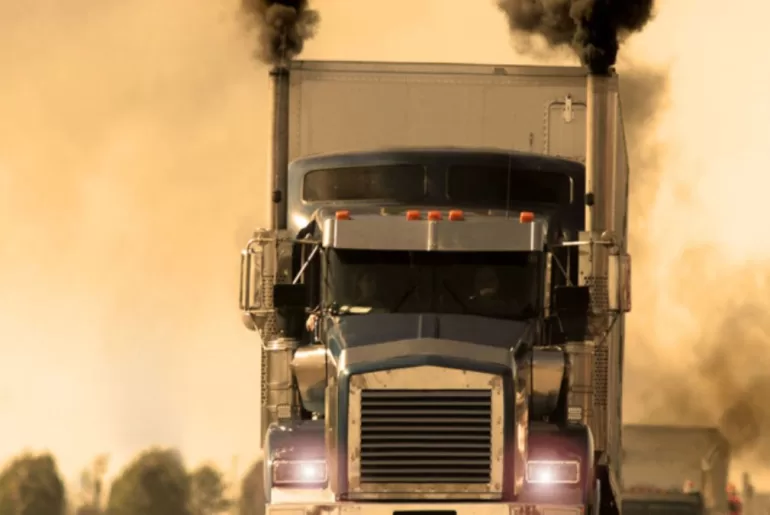According to a recent report from the UN Environment Programme (UNEP), trucks account for 80% of the startling 30% increase in CO2 emissions from heavy-duty vehicles (HDVs) since 2000.
Furthermore, over 40% of emissions of nitrogen oxides (NOx), over 60% of emissions of particulate matter (PM 2.5) on roads, and over 20% of emissions of black carbon are caused by HDVs.
Under the title “Used Heavy Duty Vehicles and the Environment – A Global Overview of Used Heavy-Duty Vehicles: Flow, Scale and Regulation,” UNEP and the Climate and Clean Air Coalition (CCAC) jointly released the report today, February 22, in Nairobi, Kenya.
It provides the first comprehensive evaluation of used HDVs’ global impact on fuel consumption, road safety, air pollution, and climate emissions by the UN, taking into account their size and regulation.
Even though HDV exports only account for 3.6% of the total value of the global automotive trade, they are expected to grow significantly due to rising economic activity and the growing demand for people and goods to be transported. This is consistent with previous trends, wherein the global sales of trucks and buses doubled in 15 years (2000-2015).
To increase the size of their vehicle fleets, many developing countries depend on the importation of used heavy-duty vehicles (HDVs).
Rob de Jong, the head of UNEP’s Sustainable Mobility Unit, emphasized that trucks and buses contribute significantly to global economies.
He did, however, emphasize the need for strict laws to reduce their emissions, which have serious consequences for the environment and public health. De Jong also emphasized how cleaner bus technologies could spur a movement in the world’s transportation sector toward low-emission and eventually zero-emission vehicles.
Almost everywhere in the world, trucks and buses boost economic growth, but strict laws are required to reduce the emissions they produce, which have detrimental effects on the environment and public health. Cleaner bus technology could play a significant role in propelling the global shift to transportation with reduced emissions, eventually reaching zero emissions.
The report emphasizes how both importing and exporting countries must work together to make sure that used cars in developing countries are safer and cleaner on the roads.
In addition to promoting greater public awareness and more research to benefit the environment and road safety, it emphasizes the need for regional cooperation to set and enforce minimum standards, such as age restrictions and emission regulations.
By 2030, for example, the adoption of cleaner fuels and vehicle emission standards comparable to those of Euro VI could avert up to 700,000 premature deaths.
Currently, 73% of buses and 97% of newly registered trucks in the EU run on diesel fuel. Strengthened restrictions on secondhand HDVs may also help developing countries leapfrog technologically by encouraging greater uptake of cutting-edge vehicles such as electric buses and trucks.
This report represents the first attempt to measure and describe flows of used heavy-duty vehicles using export data from the EU, Japan, and the Republic of Korea, which together account for about 60% of the global market for exports of new and used HDVs.
A total of 146 countries, mostly with low and middle incomes, were included in this data set. However, the report notes certain limitations, such as disparities in statistics and the lack of publicly accessible data from China, an emerging exporter, and the USA, which does not distinguish between exports of new and used cars.
To improve the well-being of both the current and future generations without endangering the health of the planet, UNEP spearheads initiatives to promote environmental stewardship and build partnerships.

